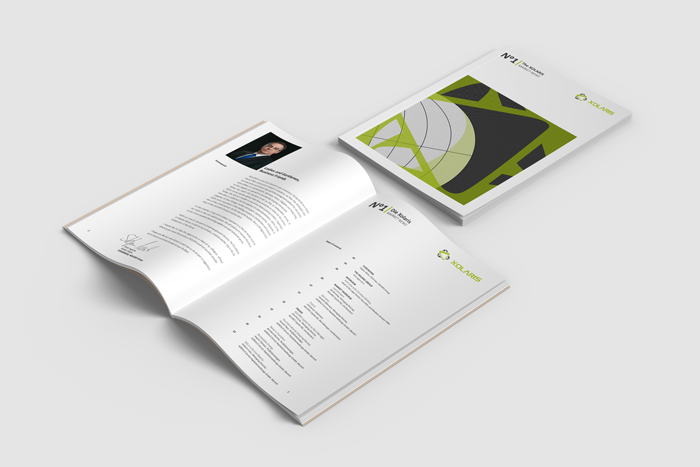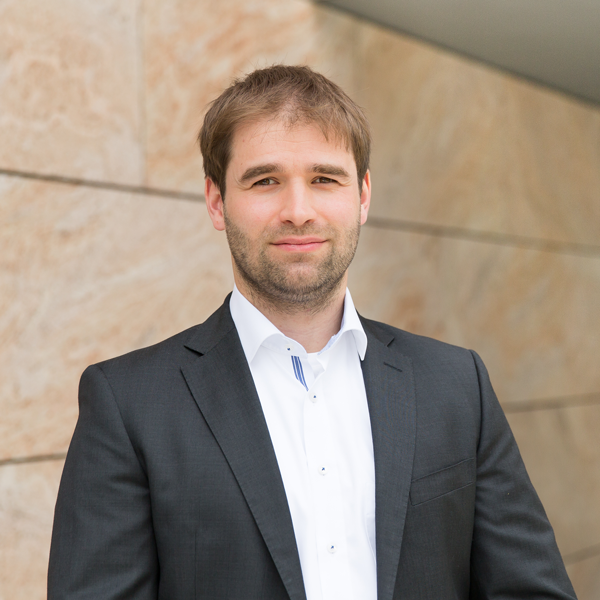XOLARIS Group2021-10-22T11:44:46+00:00
As Regards the Future, It Is Important for Us to Respond to the Wishes and Concerns of Financial Intermediaries and to Find Joint Solutions
Christian Minkus, Head of the Legal Section Securities und Markets Division FMA, Financial Market Authority Liechtenstein
DEAR MR MINKUS,
Even before the AIFMD was introduced, the Principality of Liechtenstein implemented the Directive in 2012. An article in the journal ZBB 2014, 22ff stated ” …the Principality of Liechtenstein is included because this EEA state has wrested the traditional role of “first mover….” from Luxembourg; it did this by adopting it in full in December 2012.”
At XOLARIS, we are familiar with the issue of first movers and the associated risks. What motivated the FMA to take this step ahead of any other European country and in this way put Liechtenstein very clearly on the map?
Liechtenstein has close economic and social ties with its neighbours. It also was and, therefore, continues to be a concern that mutual market access should be made possible. As a member of the European Economic Area, Liechtenstein is also required to implement the European financial market regulatory regime into national law. The rapid, consistent and market-driven implementation of strategic EU regulations, such as the AIFMD Directive, creates certain competitive advantages and this precisely in sectors where markets are only just opening up. As a small country, Liechtenstein uses its inherent advantage of short distances. It is a very agile and innovative country and its fund centre strategy is a successful one.
How does the FMA see the Liechtenstein today as a location in terms of regulation, within an overall comparison of European countries; and how does the FMA intend to expand its status as a “first mover” even further?
Liechtenstein is equivalent in regulatory terms to other European countries and leverages its agility. In this way, we would like to build on our good international position as a financial centre. In addition to maintaining and creating viable guidelines for Liechtenstein-based financial intermediaries, it was and continues to be important to the FMA that we are on an equal footing with intermediaries. We therefore seek and promote active, open exchanges. We would like to know what the concerns and wishes of the various sectors are. For new financial technologies, the FMA has created a regulatory laboratory that serves as a contact point for both traditional financial service providers and FinTechs.
What topics does the FMA want to use to expand Liechtenstein’s position as an innovation hub for the real asset industry in Europe, so as to become a market leader?
Real assets are far more complex and challenging than traditional listed or exchange-traded assets. Therefore, it is important for the corresponding know-how to be available. Historically, at a very early stage, Liechtenstein created, and now retains, funds similar to AIF for real assets and this in conjunction with investment undertakings. The AIFMD has led to all Liechtenstein investment undertakings, with very few exceptions, operating as alternative investment funds (AIF), and thus the relevant expertise has become known by means of the passporting of AIFs. As regards the future, it is important for us to respond to the wishes and concerns of financial intermediaries and to find joint solutions. This also worked very well with crypto funds a few years back and clearly shows the advantages and existing know-how of the financial centre in relation to special assets. Naturally, as a supervisory authority with a mandate of protecting clients and ensuring stability, we always include risk in our considerations.
What is the role played here by the direct, reliable and constructive cooperation of the FMA with the individual AIFMs or the Liechtenstein Fund Investment Association?
Direct exchanges with the AIFMs or the UCITS management companies as well as the LAFV are very important, as these enable us to get to know the relevant concerns and requirements and to take them into consideration with a sense of proportion during the supervisory process. Clearly, short distances, a tradition of dialogue and a business-friendly attitude are the inherent advantages enjoyed by Liechtenstein as a location.
XOLARIS is now in its eleventh year of existence. Having started as a classic back-office outsourcer based in Constance, we have now developed into an international structuring and fund management platform for real assets, with offices in Liechtenstein, Germany, France, Singapore and Hong Kong.
In this regard, our growth is consistently breaking new ground.
When we made the decision to set up KVG, an independent service, in 2014, many people agreed that there would be no market for this service.
Today, the ManCo market is one of the fastest growing markets. Expansion into Asia in 2018 laid the foundations for internationalisation, which, in the capacity of first foreign market participant, reached another milestone in 2020, with relocation of the holding company to Liechtenstein and acquisition of the AIFM licence. As the next AIFM location, Paris is the logical next step of the XOLARIS Group’s success story.
In this context, it was and is always important to us that we remain true to our roots in the real asset business. We will continue to maintain this focus as we move towards becoming a global real asset investment group.
With our new CI, we want to break new ground in this area. The first edition of Market News as well as our podcasts, constitute another step in the development of the Group.
I would like to take this opportunity to thank all my colleagues, without whose great work the success of XOLARIS would not have been possible.
I hope you like our new format as well. Even so, we are open to suggestions and criticism and look forward to your feedback.



